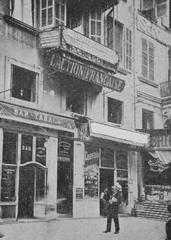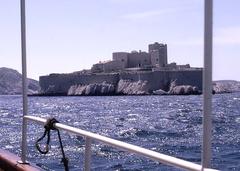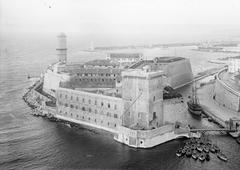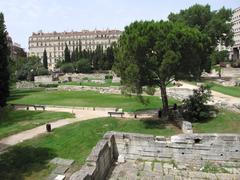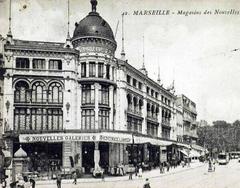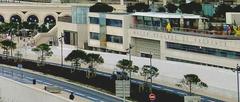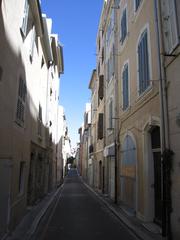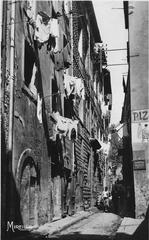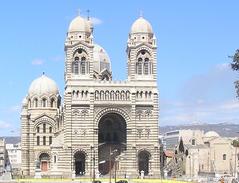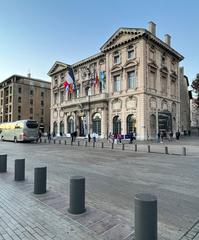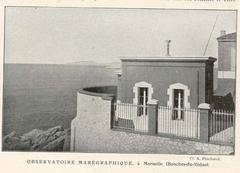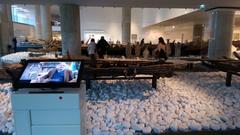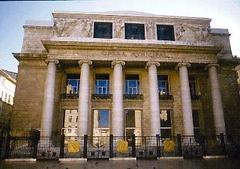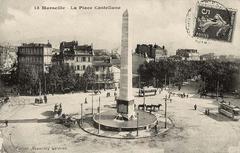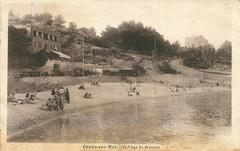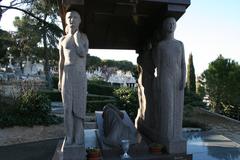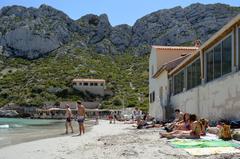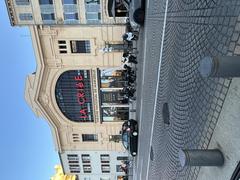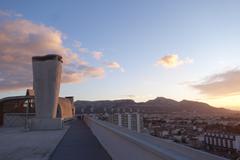La Timone Marseille: Visiting Hours, Tickets, and Historical Significance Guide
Date: 04/07/2025
Introduction
La Timone, embedded in the heart of Marseille, France, is more than a medical district—it represents a crossroads of history, healthcare innovation, and multicultural community life. Originating as a 17th-century estate, La Timone evolved into the city’s largest hospital complex and a vital hub for medical education and scientific research. Today, it serves as a focal point for healthcare professionals, students, researchers, and visitors seeking a deeper understanding of Marseille beyond its traditional tourist paths.
This guide delivers a detailed exploration of La Timone’s historical development, its role in shaping Marseille’s urban and academic landscape, and practical information for visitors—including hospital visiting hours, transportation options, and recommended nearby attractions. Whether your interest lies in medical history, cutting-edge research, or Marseille’s vibrant local culture, La Timone offers a unique perspective on the city’s enduring vitality (AP-HM Official Site, Aix-Marseille University, Marseille Tourist Office).
Table of Contents
- Introduction
- Historical Development of La Timone
- The Modern La Timone: Hospital and Research Complex
- Visitor Information: Hours, Access, and Guidelines
- La Timone’s Urban, Cultural, and Social Significance
- Frequently Asked Questions (FAQ)
- Visual Highlights and Media Suggestions
- References
Historical Development of La Timone
Early Land Ownership and Naming
The origins of La Timone date back to 1654, when Louis David, a French chargé d’affaires in Genoa, acquired a four-hectare estate in what was then rural Marseille. The property, initially used for vineyards and olive groves, eventually passed through marriage to Jean Timon-David, who constructed a bastide (traditional Provençal country house) in 1765. This bastide gave its name—Timone—to the estate and, by extension, to the emerging neighborhood (Official Marseille Tourism).
Transformation into a Medical and Academic Hub
In 1869, the city of Marseille purchased the estate, repurposing it to expand the municipal asylum and establishing the area’s enduring connection to healthcare. The 20th century saw the Faculty of Medicine relocate from the Palais du Pharo to La Timone, integrating clinical care, medical education, and research within one campus. The subsequent addition of pharmacy and dentistry faculties in the 1970s solidified La Timone’s role as Marseille’s leading multidisciplinary medical and academic center (Aix-Marseille University).
The Modern La Timone: Hospital and Research Complex
Construction, Expansion, and Notable Achievements
A major construction initiative in the early 1970s, championed by Mayor Gaston Defferre, resulted in the opening of Hôpital de la Timone in 1974. This complex, now the largest in Marseille, encompasses adult and pediatric hospitals, advanced research institutions, and university faculties (AP-HM Official Site). Notable milestones include France’s first successful pediatric kidney transplant in 1986 and the creation of the Espace Arthur center for adolescent psychiatry in 1999.
From 2007 to 2012, the “Timone 2” expansion modernized facilities and established one of Europe’s largest emergency departments. La Timone played a crucial role during the COVID-19 pandemic as a regional center for intensive care and emergency response.
Healthcare, Research, and Community Role
La Timone’s hospital complex houses the city’s primary emergency medical services (SAMU) and regional emergency call center. Affiliated with Aix-Marseille University, the campus integrates academic training with clinical practice and research. Institutes such as the Timone Neuroscience Institute (INT), CERIMED, INSERM, and CNRS contribute to advances in neurology, imaging, psychiatry, oncology, and infectious diseases (INT Events).
Visitor Information: Hours, Access, and Guidelines
Hospital Visiting Hours
General visiting hours at Hôpital de la Timone are from 2:00 pm to 8:00 pm daily, though specific department hours may vary. It is essential to confirm visiting times in advance, either through the AP-HM website or by contacting the hospital directly, as some areas may have stricter protocols.
Transportation and Accessibility
By Metro: La Timone station (Metro Line 1) offers direct access to the hospital and university, with connections to the city center and major train stations.
By Bus: Multiple bus lines, including 12, 12B, 40, 54, and 72, serve the district.
By Car: Paid parking is available but limited during peak hours. Park-and-ride options at metro stations like La Fourragère are recommended (RTM Marseille).
By Bike/On Foot: The area is pedestrian-friendly and accessible via the Le Vélo bike-sharing scheme (Le Vélo Marseille).
Accessibility features such as ramps and elevators are present throughout hospital and university facilities.
Visitor Etiquette and Safety
As La Timone is an active medical and academic campus, visitors should respect privacy, follow hospital security protocols, and avoid photography unless specifically permitted during events. Public access is generally limited to communal areas and gardens; guided tours may be available during science festivals or by arrangement (IRM-INT Events).
La Timone is regarded as safe, though standard urban precautions are advised, especially after dark.
Nearby Attractions
- Palais du Pharo and the Old Port: Easily reached by metro.
- Le Panier: Known for street art and historic charm.
- Cours Julien: Vibrant cafés and cultural life.
- Calanques National Park: Day trips for hiking and nature (Time Out Marseille).
La Timone’s Urban, Cultural, and Social Significance
Community Diversity and Student Life
Reflecting Marseille’s multicultural identity, La Timone hosts a diverse population of healthcare professionals, students, and residents. The presence of France’s largest medical intern residence and faculties of medicine, pharmacy, and dentistry creates a youthful, cosmopolitan environment (AMIPBM, Aix-Marseille University). Cafés and restaurants offer a mix of Provençal, North African, and Mediterranean cuisine (Erasmusu).
Urban Renewal and Socioeconomic Impact
Ongoing modernization projects, including substantial investment in hospital infrastructure and the new “Femmes-Parents-Enfants” building, underscore La Timone’s status as a medical innovation hub (Made in Marseille). These developments contribute to local economic growth, job creation, and enhanced community services.
Cultural Events and Community Initiatives
Public events—such as university open days, the Fête de la Science, and citywide festivals—highlight La Timone’s integration with Marseille’s broader cultural calendar (Aix-Marseille University).
Frequently Asked Questions (FAQ)
Q: What are the visiting hours for La Timone Hospital?
A: General visiting hours are 2:00 pm to 8:00 pm daily, but check specific department schedules.
Q: Is admission free, and are tickets required?
A: Admission is free. Tickets may be required for special tours or events.
Q: How do I reach La Timone?
A: Metro Line 1 (La Timone station), several bus lines, and bike-sharing make access easy.
Q: Are guided tours available?
A: Occasional tours are offered during science festivals or university events; check institute websites for details.
Q: What nearby sites should I visit?
A: Explore the Old Port, Le Panier, and Cours Julien—all easily accessible by public transit.
Visual Highlights and Media Suggestions
- Include high-resolution images of Hôpital de la Timone, the historic bastide, and the vibrant local markets (alt tags: “Timone Hospital exterior in Marseille”, “Local market in La Timone, Marseille”).
- Utilize interactive maps showing transport links and nearby attractions.
- Feature virtual tours during public events, available on official hospital and university websites.
References
- Assistance Publique – Hôpitaux de Marseille
- Aix-Marseille University
- Marseille Tourist Office
- Marseille City of Culture
- Made in Marseille
- Lonely Planet Marseille Travel Tips
- RTM Marseille
- Erasmusu
- AMIPBM
- Time Out Marseille
